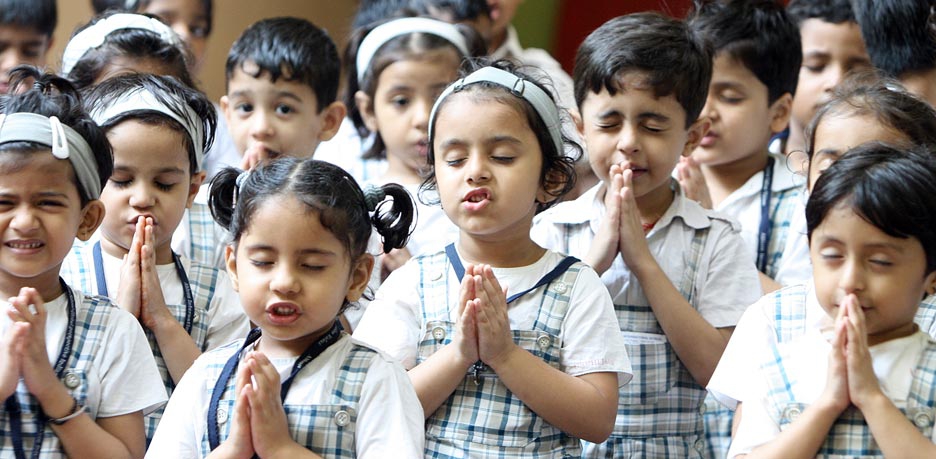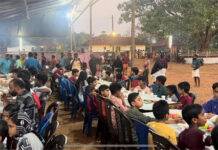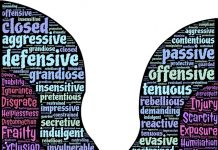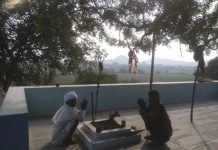Petitioners have gone to the Supreme Court challenging the act of making Hindi and Sanskrit prayers compulsory in Kendriya Vidyalas across the nation and they see it as against the Constitutional rights of the minorities and non-believers.
The New Leam Staff

The mandatory singing of Sanskrit and Hindi prayers during the morning assemblies with eyes closed and hands folded in the country’s 1,200 Kendriya Vidyalayas was challenged by a petition. The petition tried to question the taken for granted practice and divert the Supreme Court’s attention to it. In a response, the Supreme Court has referred the matter to the special bench which would decide on the matter.
One of the petitioners Veenayak Shah says “Article 92 requires the teachers to guide and supervise the prayer. In case a student does not stand with his palms folded and does not recite the prayer then the teacher is expected to bring the student on the stage to correct them in public”. He added “Similarly if the teacher does not enforce the folding of the palms and the saying of the prayer then the principal is expected to reprimand the teacher. This is happening in (KVS) schools throughout the country.” He too added “parents and children of the minority communities as well as atheist(s) and others who do not agree with this system of prayer such as agnostics, skeptics, rationalists and others would find the imposition of this prayer constitutionally impermissible.”
The other petitioner Jamiat Ulama-i-Hind, says: “On failure to recite the said prayer the concerned student is reprimanded…. Since the said common prayer is based on Hinduism, the members of the minority communities who are forced to recite (it) are aggrieved by the said provision.”
It is obvious that the rule goes against Articles 28 and 25 (freedom of conscience and free profession, practice and propagation of religion) of the Constitution.
The petitioners also sought for the quashing of the Article 92 of the Kendriya Vidyalaya Revised Education Code that makes prayer compulsory and non-compliance to prayer punishable. The petitioners reminded the Supreme Court that such an orientation to prayer was against people’s right to dignity as it was being forced on them from above. The minorities, the agnostics and the skeptics would have to suffer in silence if such a code of conduct was not challenged. Moreover, this compulsory Hindu prayer would go against Article 28(A) of the Indian Constitution which states that no religious instruction can be provided in schools that are run on state funds.
(Inputs from The Telegraph)














